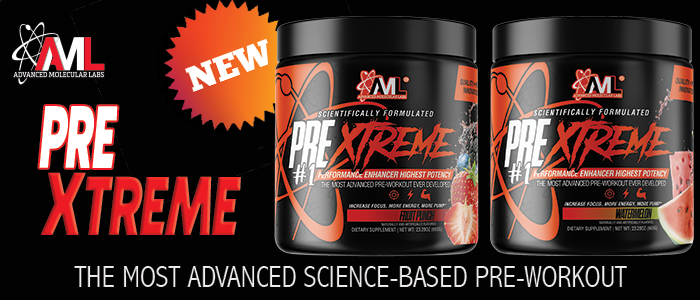


ARE ALL COVID-19 VACCINES CREATED EQUAL?
By Steve Blechman
Coronavirus cases are falling in many parts of the country. More than 40 million Americans have been vaccinated. I am 67 years of age and eligible for the coronavirus vaccine. On Thursday, February 4th I received my first Moderna vaccine shot. On March 2nd I will receive my second dose.
For weeks now, COVID vaccinations have begun in the United States. Unfortunately, many people eligible for the vaccine are having trouble making appointments.
Only two vaccines by Moderna and Pfizer have been FDA approved for emergency use to prevent coronavirus disease (COVID-19) caused by SARS-CoV-2. On Thursday, February 5th Johnson & Johnson submitted an application to the Food and Drug administration (FDA) for emergency authorization. Johnson & Johnson says they can begin shipping early March as soon as FDA approves it. The approval of a third vaccine would accelerate the vaccine rollout in the United States and lower coronavirus cases, hospitalizations and deaths.
One advantage of the Johnson & Johnson COVID vaccine is that it is given in one dose, while the vaccines from Moderna and Pfizer are administered as two doses. Another benefit of Johnson & Johnson’s vaccine is that it can be kept under refrigeration, while the Moderna and Pfizer vaccines need to be stored in a freezer at much colder temperatures.
The Johnson & Johnson vaccine is only 66% effective based on an international clinical trial at preventing moderate and severe COVID-19 disease. The Pfizer vaccine showed 95% efficacy in preventing symptomatic COVID infections after two doses, while the Moderna vaccine was 91.2% effective after the second dose.
A fourth COVID-19 vaccine by Oxford-AstraZeneca is emergency-use approved in European and other countries. It is not yet approved in the United States because of the lack of data on the efficacy in older people. The AstraZeneca vaccine showed only 62% efficacy after its two doses in clinical trials. Most recently, South Africa halted AstraZeneca COVID vaccines after a small clinical trial found that the vaccine did not protect people from the new mutated variant and from mild and moderate illness, and showed it was only 10% effective. Like the Johnson & Johnson vaccine, the AstraZeneca vaccine can be stored under normal refrigeration conditions.
mRNA VERSUS DNA COVID VACCINES
The Moderna and Pfizer vaccines are mRNA vaccines. mRNA vaccines do not change your DNA. They contain messenger ribonucleic acid. Johnson & Johnson and AstraZeneca are DNA vaccines. “Compared with DNA-based vaccines, mRNA does not integrate into the hosts’ genome, thus minimizing the genotoxicity issue.” (Adv Drug Deliv, February 2021.) According to Bryn Boslett, MD, a renowned infectious disease expert from the University of California, San Francisco, who acknowledged in the publication Patient Care on January 27, 2021, “It’s basically a piece of material that contains instructions,” said Dr. Boslett. “Once its injected, it taken up by your cells, but it never enters the cell nucleus where all of your DNA exists within your cells.”
The Patient Care article says, “The mRNA contains instructions for your cells to make spike proteins that match the ones found on the surface of the SARS-CoV-2 virus, which caused COVID-19. When your cells present these spike proteins on their surface, your body recognizes them as foreign and develops an immune response, including antibodies specific to the spike protein.” The mRNA is just “a temporary message,” said Dr. Boslett. “After the spike protein gets made, your body destroys the mRNA so it doesn’t stick around in the body. It doesn’t mix with any genetic code. It doesn’t go into your DNA. I’m not at all worried about there being any kind of damage to a person’s DNA from vaccines.”
Many top infectious disease experts are concerned with the new mutated variants in the UK, Brazil and South Africa that can make the vaccines less effective. These mutated variants are transmitted more efficiently but are not more deadly. Moderna, Pfizer, Johnson & Johnson and AstraZeneca are working on booster shots for the vaccines to make sure their existing vaccines will work against the new variants and prevent another surge. We don’t know yet if these booster shots will be needed. The South African variant is most concerning! In the Johnson & Johnson clinical trial, their vaccine had a 57% efficacy rate against moderate to severe disease.
4 OUT OF 10 AMERICANS DON’T PLAN ON GETTING VACCINATED
Pew Research Center, a nonpartisan fact tank, has said that nearly four in 10 Americans say they don't plan on getting vaccinated. Many Americans are reluctant and not interested in vaccination. Some view COVID-19 vaccines with suspicion, resulting in anti-vaccine attitudes. Also, there is anti-government anger, even though health authorities including the Centers for Disease Control and Prevention (CDC) say COVID vaccinations are safe and that serious adverse effects appear to be uncommon. Based on the science and clinical trial data, there is truly little evidence of serious side effects in millions who have already been vaccinated. Based on health department data, Black Americans and Latinos are less likely to get vaccinated because of a distrust of our health care system, even though the coronavirus is more deadly in Blacks and Latinos.
Like the flu shot, COVID vaccines may cause side effects in some people. Frail and sick people over 80 years of age would be at the highest risk. COVID vaccines may be too risky for the very old and terminally ill. It has recently been reported in The New York Times on February 9, 2021, that some older patients are experiencing adverse side effects such as a rare blood condition called “immune thrombocytopenia - a lack of platelets, a blood component essential for clotting.” The article also states, “It is not known whether this blood disorder is related to the COVID vaccines. More than 31 million people in the United States have received at least one dose, and 36 similar cases had been reported to the government’s Vaccine Adverse Event Reporting System, VAERS, by the end of January. The cases involved either the Pfizer-BioNTech or Moderna vaccine, the only two authorized so far for emergency use in the United States.”
The CDC recommends anyone with a history of allergic reactions or anaphylaxis should consult their physician before taking the vaccine, and then be observed 30 minutes after injection. Other recipients should only be observed for 15 minutes.
Some possible non-serious side effects of Moderna and Pfizer vaccines are fever, chills, headaches, and fatigue. Also, injection site pain and swelling for a few days. Studies have shown stronger side effects after the second shot. Side effects mean the vaccine is working and your immune system is reacting.
Moving forward, public health authorities need to be as transparent as possible with effective strategies to assure the public that vaccines are safe and effective, easing fears!
Many infectious disease experts estimate that 70% to 85% of the population in the United States needs to be vaccinated to achieve herd immunity and help contain the spread of this contagious disease. Hopefully, this can be achieved before the end of 2021, as long as more people get vaccinated and the mutated variants don’t set us back. In the interim, as more people get vaccinated, rising immunity will occur and make life more livable and especially when the weather gets warmer as we head into spring and summer.
© Published by Advanced Research Media, Inc. 2021
References:
- Park KS, Sun X, Aikins ME, Moon JJ. Non-viral COVID-19 vaccine delivery systems. Adv Drug Deliv Rev 2021 Feb;169:137-151. doi: 10.1016/j.addr.2020.12.008. Epub 2020 Dec 17. PMID: 33340620; PMCID: PMC7744276.
- Ura T, Yamashita A, Mizuki N, Okuda K, Shimada M. New vaccine production platforms used in developing SARS-CoV-2 vaccine candidates. Vaccine 2021;39(2):197-201. doi:10.1016/j.vaccine.2020.11.054
- Karpiński TM, Ożarowski M, Seremak-Mrozikiewicz A, Wolski H, Wlodkowic D. The 2020 race towards SARS-CoV-2 specific vaccines. Theranostics 2021 Jan 1;11(4):1690-1702. doi: 10.7150/thno.53691. PMID: 33408775; PMCID: PMC7778607.
- COVID-19 Vaccine Fact Vs. Fiction: An Expert Weighs in on Common Fears. Nina Bai. Patient care, January 27, 2021. https://www.ucsf.edu/news/2021/01/419691/covid-19-vaccine-fact-vs-fiction-expert-weighs-common-fears
- Ensuring the Safety of Vaccines. Centers for Disease Control & Prevention (CDC.) January 28,
2021 https://www.cdc.gov/coronavirus/2019-ncov/vaccines/safety.html
- Efficacy and Safety of the mRNA-1273 SARS-CoV-2 Vaccine. Baden, Lindsey R., El Sahly, Hana M., Essink, Brandon et al. 2/04/2021. NEJM. doi: 10.1056/NEJMoa2035389
- Maintaining Safety with SARS-CoV-2 Vaccines. Mariana C. Castells, M.D., Ph.D., and Elizabeth J. Phillips, M.D. 12/30/2020. NEJM. DOI: 10.1056/NEJMra2035343
- Safety and Efficacy of the BNT162b2 mRNA Covid-19 Vaccine. Fernando P. Polack, MD, et al. NEJM. 12/31/2020. https://www.nejm.org/doi/full/10.1056/NEJMoa2034577
- Cohen, A.F., van Gerven, J., Burgos, J.G., de Boer, A., Foucher, R.A.M., Flore, H., Teitelbaum, Z., van Eden, W., Webb, A. and Cremers, S. (2020), COVID‐19 vaccines: the importance of transparency and fact‐based education. Br J Clin Pharmacol 86: 2107-2110. https://doi.org/10.1111/bcp.14581
- Zhou P, Li Z, Xie L, An D, Fan Y, Wang X, Li Y, Liu X, Wu J, Li G, Li Q. Research progress and challenges to coronavirus vaccine development. J Med Virol. 2021 Feb;93(2):741-754. doi: 10.1002/jmv.26517. Epub 2020 Oct 7. PMID: 32936465.
- A Few Covid Vaccine Recipients Developed a Rare Blood Disorder by Denise Grady. February 9, 2021. https://www.nytimes.com/2021/02/08/health/immune-thrombocytopenia-covid-vaccine-blood.html






